The Kolyma Highway is 2032 kilometers long and connects Yakutsk with Magadan. The authorities try their best to maintain the road. However, due to the extreme climate, the road is hardly traversable by standard road vehicles. During winter it is easier, because frozen water actually helps river crossings.
Our vehicle is a 6x6 Ural truck with passenger cabin. This type of transport is called Vachtovka. Its gearbox is not synchronized nor equipped with differential locks. But it is is simple and reliable, which is an attractive quality in remote areas. Because of the rather low temperatures, Vasily can not switch its Ural off for longer than about 20 minutes. He has to do this once per day to check the oil gauge.
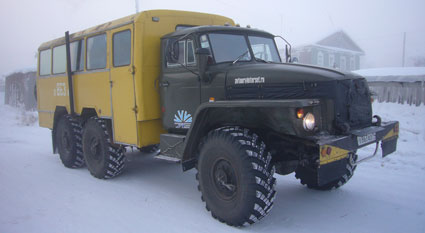
After buying the last essentials (bread and bear), we paid the obligatory tribute. The indigenous people of Yakutia are pagans and many customs made it into everyday life. The custom we obey is to drink some vodka at the bank of the Lena River. Of course, the Lena gets the first gulp.
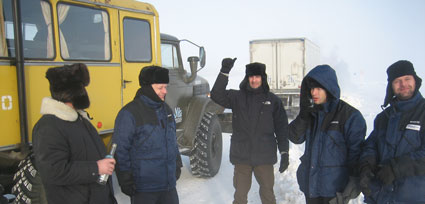
The landscape on this leg of the journey was flat with lots of forests and the occasional settlement. The road was good and we made good progress. We stopped at a roadhouse for a Borsch and a Plov. The place was also a kind of memorial for the Great Patriotic War.
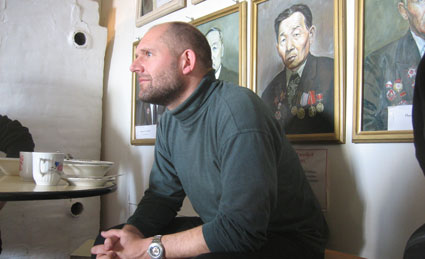
In Chandiga we searched for a stove and gas, this included some strange street dealing. Our cook Valentina climbed also on the bandwagon.
Between Chandiga and Tioply Kliutsh we encountered a crashed mini bus. Obviously, it had skidded and then hit the snow at the roadside. The four passengers seemed slightly drunk. We took them with us to Chandiga, because in the cold they would not have survied the night. They were laughing all the time. One of them had a bleeding finger and was pulling smithers of glass out of his head and hair. Valentina read them the riot act and kept them in check.
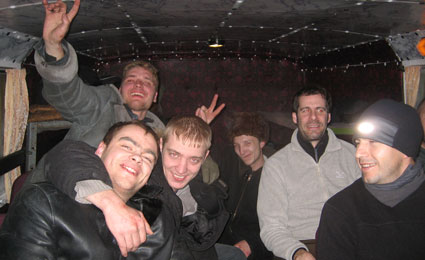
At Tioply Kliutsh we spent the night in a hotel. Actually it was a one room apartment with six beds in the living room.
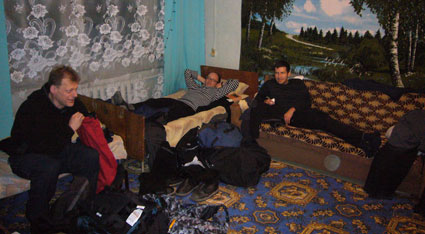
Elena, the mother of the real inhabitants, was very nervous. She was afraid that we were not pleased, which caused a lot of fuss. At one point, her daughter called because she was afraid to have her mother in the middle of six foreign men (one of them is taking the picture):
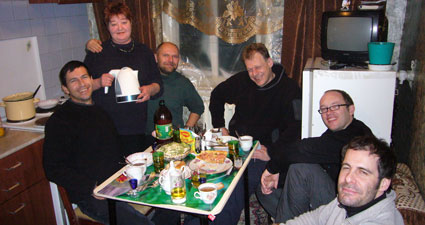
* Anne Applebaum, Gulag: A History, Doubleday, April, 2003, page 100-101

No comments:
Post a Comment